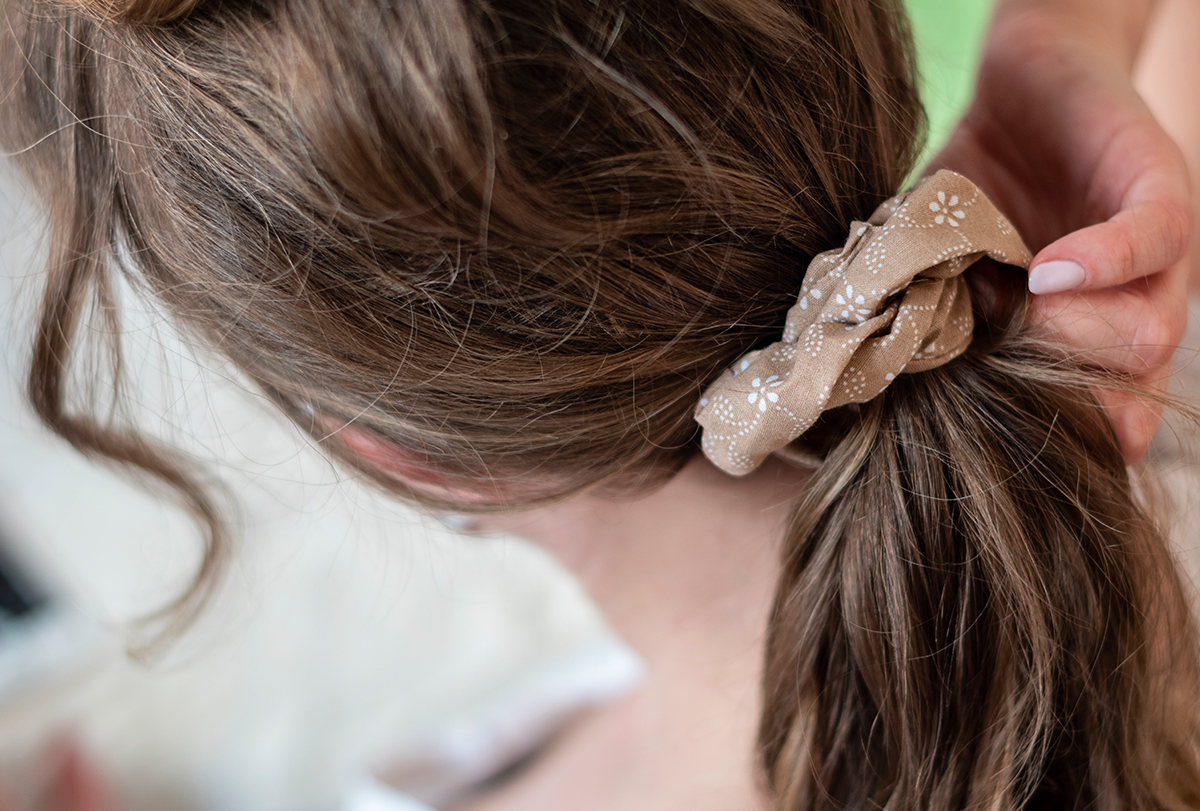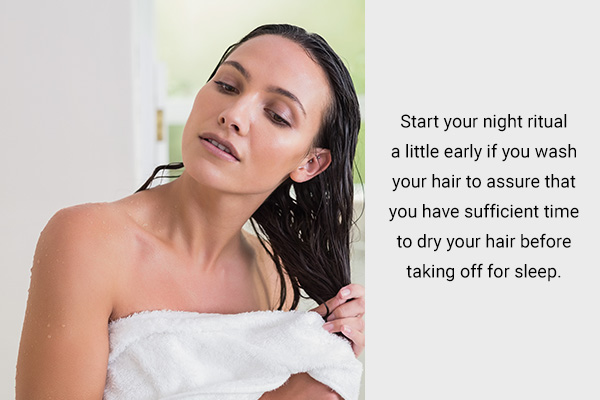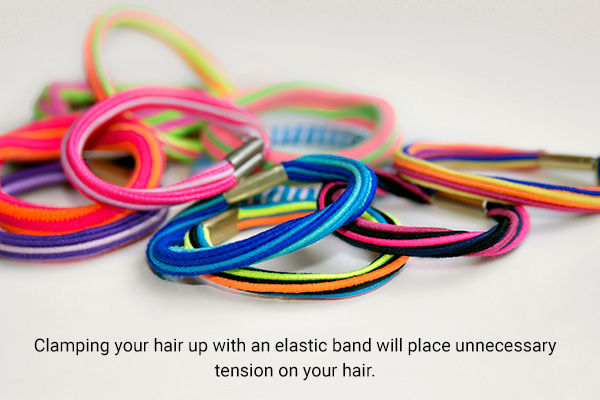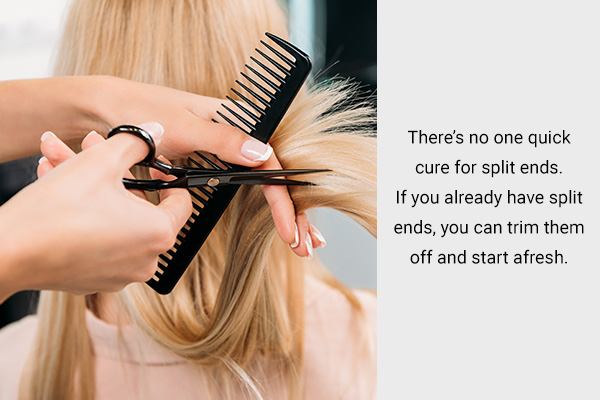In this article:
A proper nighttime hair routine is very important to ensure the hair’s wellness and health. But the question is, when was the last time you took out time to care for your hair before going to sleep?

In the absence of proper hair protection at night, the hair tends to lose its strength and even break during sleep. As explained by healthcare professionals, when you are asleep, your hair has to face increased friction and pulling due to continuous tossing and turning, resulting in split ends and other forms of hair damage.
Read on to learn how to prevent split ends when sleeping.
Tips to Prevent Split Ends While Sleeping
Here are some measures you can take to achieve your goal of having healthy hair and preventing any damage to your locks while sleeping.
1. Do not sleep with your hair tied too tightly
Bringing in essential protection methods for the hair is important. One such method is the practice of braiding your hair when you sleep.
The hair should be braided gently and not in haste; otherwise, it will cause unnecessary breakage and ripping of your hair.
Professionals also suggest that you apply a serum or a leave-in conditioner before you braid your hair if your hair is not that easy to manage.
What is essential is that the braid should be loose. Yanking on your hair tightly to braid it can lead to traction alopecia, which is a form of hair loss that occurs as an outcome of wearing hairdos that put pressure on the hair. Research indicates that this traction or pull can be harmful to hair health. (1)(2)(3)
2. Sleep with dry hair

When your hair is wet, it can readily be damaged as wet hair is extremely delicate. Sleeping with wet hair might result in damage and increases the odds of knots or broken hair strands.
Moreover, sleeping with wet hair can cause scalp issues since wet pillows and hair can shelter harmful fungi. These fungi may cause illnesses and infections that can negatively influence your scalp and hair health. (4)
So, start your night ritual a little early if you wash your hair to assure that you have sufficient time to dry your hair before taking off for sleep.
Professionals also share that braiding or clamping your hair up when it’s still wet can put pressure on the hair shaft. Therefore, these practices shouldn’t be done either. (4)
3. Use a silk pillowcase
Sleeping on a silk cushion can be helpful for your hair care ritual. Silk can help maintain the smoothness of your hair during the night, providing you with more manageable hair in the morning.
There is also research to indicate that silk pillowcases can safeguard your hair from hair loss due to traction, as silk pillowcases let your hair move at night smoothly when you toss and prevent excessive breakage. (5)
4. Use the right hair bands

Selecting the right hair bands for your hair is very important. You should use hair bands that don’t cause hair damage.
Extremely thin plastic hair bands can be difficult to remove, resulting in hair knots. So, prefer bands that have a cloth covering that is comfortable when you sleep. (6)
Hair care experts advise bypassing the use of elastic bands at night. Clamping your hair up with an elastic band will place unnecessary tension on your hair.
5. Use a nightcap or covering for your hair
To protect your hair while napping or sleeping, take advantage of a nightcap to retain your hair in position. As you sleep, your braids can unfasten or come loose, so employing a nightcap can assist in keeping your hair in place.
A nightcap is useful because it lessens friction and therefore the chances of getting split ends. A silk hair wrapping would function in a similar fashion. The purpose of these hair wraps is to decrease any traction.
Additional Tips to Prevent Split Ends
Here are some additional tips to help you walk on a split-ends-free road:
- Choose a shampoo that is gentle and moisturizing for your hair. Some shampoos can strip the natural oils from your hair, making it dry and prone to split ends.
- After every shampoo, apply a moisturizing conditioner to your hair to coat your strands and reduce breakage and split ends.
- Want to give your hair some extra love? Use a leave-in conditioner or detangler after washing and conditioning your hair. This will help reduce breakage, split ends, and frizz.
Is Unclean Bedding Bad for My Hair?
Unclean bedding or not changing the sheets often contributes to hair greasiness and increases the likelihood of infections as unclean sheets can be the breeding grounds for microbes.
Final Word

There’s no one quick cure for split ends. If you already have split ends, you can trim them off and start afresh.
Follow a good nighttime routine since prevention is better than cure. Make sure your hair is nourished, moisturized, and protected from damage.
- Was this article helpful?
- YES, THANKS!NOT REALLY


